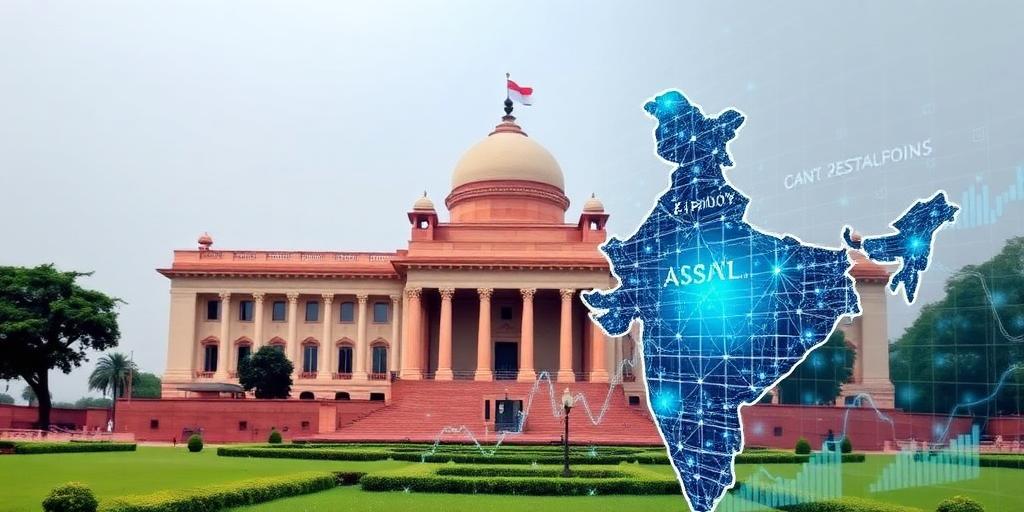India's policy landscape is undergoing a significant transformation this year, marked by strategic reforms and initiatives poised to reshape its economic, social, and technological future. These major policy changes are not merely incremental adjustments but represent a concerted effort to enhance the nation's global standing, foster domestic growth, and improve citizen welfare. Understanding these shifts is crucial for businesses, investors, and the populace alike.
Economic Reforms and Industrial Growth
At the forefront of India's policy agenda are robust economic reforms designed to stimulate industrial growth and attract foreign investment. The Production Linked Incentive (PLI) schemes continue to expand, covering a broader array of sectors from advanced chemistry cells to textiles and food products. These schemes are instrumental in localizing manufacturing, boosting exports, and integrating India further into global supply chains. Furthermore, fiscal policies are being meticulously crafted to balance growth with stability, with a continued emphasis on capital expenditure to create infrastructure assets that yield long-term returns. The focus remains on easing the 'cost of doing business' through regulatory streamlining and digital integration, a key aspect of economic reforms India.
Infrastructure Development and Connectivity
Infrastructure development remains a cornerstone of India's growth strategy. The 'PM Gati Shakti National Master Plan' is accelerating multi-modal connectivity projects, integrating various ministries to plan and execute projects more efficiently. This includes significant investments in roads, railways, ports, and airways, aiming to reduce logistics costs and enhance regional connectivity. Urban development initiatives are also gaining traction, with smart city projects and affordable housing schemes being prioritized to accommodate rapid urbanization. These India policy updates 2024 are designed to build a resilient and interconnected nation.
Digital Transformation and Public Services
The ongoing digital transformation is another critical area of policy focus. India's pioneering 'Digital Public Infrastructure' (DPI) — encompassing Aadhaar, UPI, and the Open Network for Digital Commerce (ONDC) — is being further expanded and refined. Policies are being formulated to promote digital literacy, cybersecurity, and data protection, ensuring a secure and inclusive digital environment. The objective is to leverage technology for delivering public services more efficiently, enhancing financial inclusion, and fostering a vibrant digital economy. This push represents a significant regulatory changes India is implementing to embrace the future.
Social Welfare and Skill Development
In the realm of social welfare, policies are centered on health, education, and skill development. Flagship programs like Ayushman Bharat continue to expand healthcare access, while new initiatives are being explored to strengthen primary healthcare infrastructure and human resources. Education policies are evolving to align with the National Education Policy 2020, emphasizing multidisciplinary learning and skill-based vocational training. A strong focus on skill development India aims to equip the workforce with future-ready capabilities, addressing the demands of a rapidly changing global economy.
Environmental Sustainability and Renewable Energy
India's commitment to environmental sustainability is reflected in its ambitious renewable energy targets and green initiatives. Policies are promoting the adoption of clean energy sources, electric vehicles, and sustainable urban planning. Schemes incentivizing green hydrogen production and carbon capture technologies underscore the nation's resolve to meet its climate commitments while pursuing economic growth. These government initiatives India is undertaking are crucial for a sustainable future.
Looking Ahead: Strategic Implications
The cumulative impact of these policy changes is expected to be profound, fostering a more competitive, inclusive, and sustainable India. While challenges remain, the clear strategic direction and assertive implementation signal a period of significant growth and structural evolution. Stakeholders must continuously monitor these developments to adapt strategies and capitalize on emerging opportunities presented by India's dynamic policy landscape.









